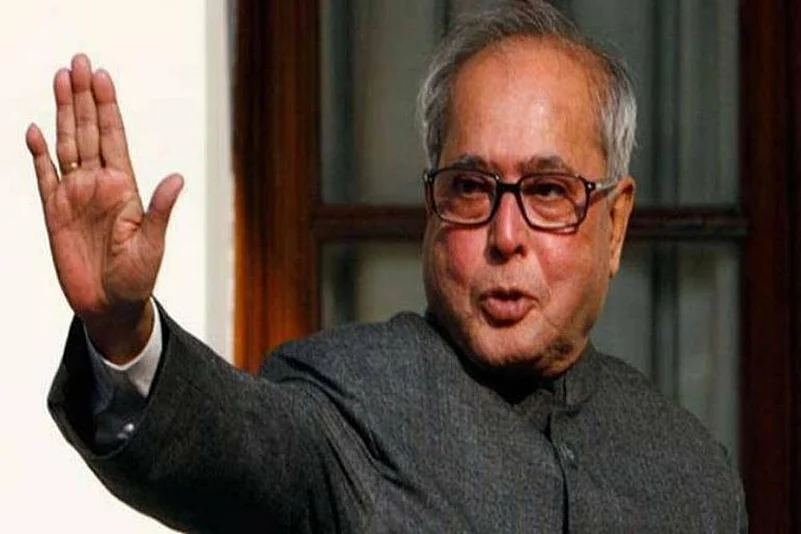Former President Pranab Mukherjee, who was conferred the countrys highest civilian honour Bharat Ratna on Friday, is an elder statesman who has made lasting contribution to the countrys progress in nearly five-decade public life, steered governance and inspired youth towards excellence in academics and other fields.
Mukherjee, 83, served the country as its 13th President for five years from July 25, 2012 and emerged in the role as a respected and admired leader whose words were heard with attention not only by those in power politics but by the common man as well.
Mukherjee worked with two prime ministers - Manmohan Singh and Narendra Modi - and had excellent equation with both of them.
Advertisement
A quintessential Congressman who served for 23 years as a member of the Congress Working Committee, the highest policy-making body of the party, Mukherjee showed a natural ease in his relationship with Modi who belonged to the party he had strongly opposed in his political career. The two shared a warm relationship and lauded each other publicly.
A believer in the value of dialogue, Mukherjee caused quite a surprise by visiting the RSS headquarters at Nagpur last year even as some Congress leaders urged him not to do so. In his widely watched speech, he emphasised India's pluralism.
As President, Mukherjee laid a lot of stress on innovation and on boosting country's rankings in higher education as none of Indian universities is in the top 100 rankings. He was acutely aware that unless the country was a leader in the knowledge space, it cannot realise its potential and compete with other emerging economies.
Advertisement
He sought to start an eco-system that fostered creativity of young minds and valued innovations at the grassroots.
Widely respected across the political spectrum, Mukherjee strove for consensus in politics and served five times as a member of Rajya Sabha from 1969 and twice as a member of the Lok Sabha.
Known for his sharp memory, clarity of thought and grasp over issues, he has the rare distinction of serving as Foreign, Defence, Commerce and Finance Minister and was seen by many as a potential prime minister. He was also a Deputy Chairman of the Planning Commission.
As a minister in UPA governments from 2004 to 2012, Mukherjee was instrumental in spearheading critical decisions on a range of issues such as administrative reforms, Right to Information, Right to Employment, Food Security, energy security, Information Technology and telecommunication, setting up of UIDAI and Metro Rail through chairmanship of over 95 Groups of Ministers constituted for the purpose.
In seventies and eighties, he was instrumental in setting up regional rural banks (1975) and the EXIM Bank of India as well as National Bank for Agriculture and Rural Development (1981-82).
Mukherjee is also author of a modified formula for resource sharing between the Centre and the States in 1991 which came to be known as the Gadgil-Mukherjee formula.
Born in a small village of Mirati in Birbhum District of West Bengal, Mukherjee's father was a Congress leader who endured great hardship including being sent to jail several times for his role in India's struggle for independence.
Mukherjee pursued History, Political Science and Law from Kolkata University and embarked on his professional life as a college teacher and journalist.
Advertisement
He served as a deputy minister and Minister of State for Finance in 1973-74 and became Finance Minister in 1982.
Mukherjee also served on the Board of Governors of the IMF, World Bank, Asian Development Bank and African Development Bank.
A prolific reader, Mukherjee has authored several books.
He was conferred Padma Vibhusan, India's second highest civilian award, Padma Vibhusan in 2008.
He has also been given the Best Parliamentarian Award in 1997 and Best Administrator in India Award in 2011.
Mukherjee was rated one of the best five finance ministers in 1984 according to a survey conducted by "Euro Money" Journal.
Advertisement
He enjoys reading, gardening and music in his spare time and is a dedicated patron of arts and culture.
IANS




















